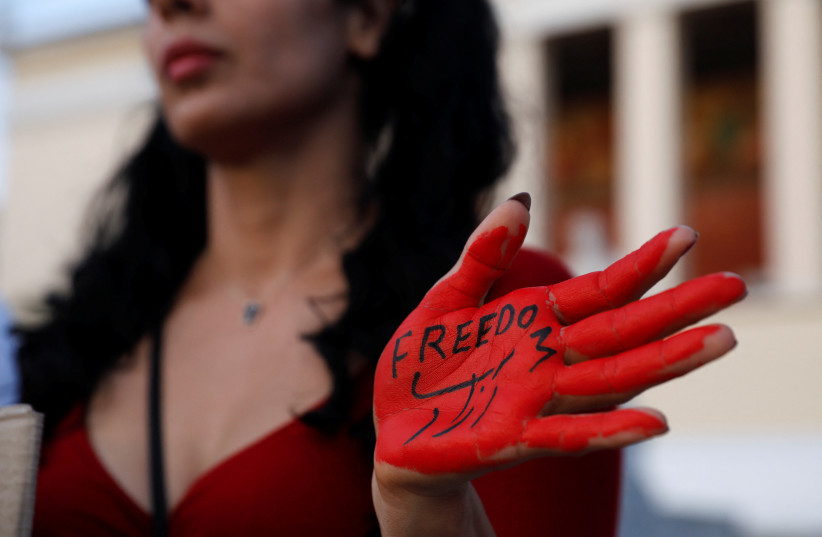Swiss Ambassador to Iran Nadine Lozano was summoned to Iran’s Foreign Ministry after the embassy retweeted a condemnation of the execution of protesters, Iranian media reported.
The tweet, which was originally sent out by the Swiss Foreign Affairs Ministry, read “#Iran | We strongly condemn the executions this morning of three men in connection with the protests following the death of Mahsa Amini in September 2022. [Switzerland] urges Iran to stop these executions & to take steps to reduce the use of the death penalty. “
The Swiss Embassy in Iran then translated the tweet, sharing it again in Farsi.
Why did Iran summon Lozano over tweets?
According to Iranian media, the tweet had caused upset for several reasons, including the use of a “false flag.”

The flag that had been used in the tweet, featuring a golden lion and a sun, had been replaced by the Islamic Republic in 1980. This flag had roots dating back to 12th century Persia, according to National Geographic, and was a symbol of the monarchy. When the Iranian Revolution overthrew the monarchy in 1979, a new flag was designed by Hamid Nadimi with a red tulip.
The embassy’s tweet urged Iran to discontinue executions and connected the recent executions of three men to the protests that have taken place since the state murder of Mahsa Amini. Iranian media had described the three men as “terrorists.”
Iranian media described the tweet as an “act of intervention” and criticized Switzerland's “meddlesome stances on Iran's internal affairs…”
Statement from the Iranian Foreign Ministry
Iran’s Foreign Ministry also released a statement on Saturday, stating that Europe and the United States are not authorized or in a position to comment on Iran’s internal affairs or human rights.
In the statement, the Iranian Foreign Ministry spokesman Nasser Kanaani said, “Instead of intervening in the internal affairs of other countries and presenting a seemingly humanitarian face, Western politicians had better listen to the voices of their own citizens’ protests and spend their time providing their human rights and citizenship demands.”
The widespread violation of the basic rights of Western citizens, including the right to freedom of expression, and the use of excessive violence by the police and security forces against protesting people in Europe and the United States, along with the issuance of political statements about the internal laws of other countries, clearly indicate the instrumental use of human rights in order to advance illegitimate goals and political interests.”
“It is very ridiculous that those who themselves have a heavy history of gross human rights violations against other nations and are openly engaged in violating the rights of their citizens in their own country and are silent in the face of the daily tragedies and crimes of the Zionist regime against the Palestinian nation and even take a supportive stance in this regard, comment on the execution of court orders against the murderers and promoters of violence against the lives and peace and security of the people of Iran.”
